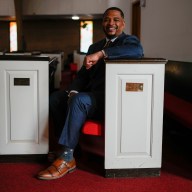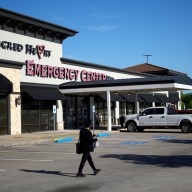By Andy Sullivan
WASHINGTON (Reuters) – States across the American South have closed nearly 1,200 polling places since the Supreme Court weakened a landmark voting-discrimination law in 2013, according to a report released by a civil-rights group on Tuesday.
The Leadership Conference on Civil and Human Rights found http://www.democracydiverted.org that states with a history of racial discrimination have shuttered hundreds of voting locations since the court ruled that they did not need federal approval to change their laws. The report did not have comparisons with polling places in other regions.
The report comes as Republican-led states impose a range of other restrictions, from shorter voting hours to photo-ID requirements. As turnout has surged in recent elections, voters in cities like Phoenix, Arizona and Atlanta, Georgia, have endured hours-long waits to cast their ballots.
Seven counties in Georgia now have only one polling place, the report found.
Under the Voting Rights Act of 1965, areas with a history of voting discrimination – such as requiring African American or Hispanic voters to pay a poll tax or pass a literacy test – had first to convince the U.S. Justice Department or a federal court that any election changes they wished to make would not have a discriminatory effect. The Supreme Court struck down that portion of the law in 2013.
The law covered a swath of southern states stretching from Virginia to Texas, along with Arizona, Alaska and a few counties in states like New York, North Carolina, Florida, Michigan, South Dakota and California.
The high number of poll closures in these regions shows that Congress needs to restore the protections that were previously in place, said Vanita Gupta, the group’s president.
“Moving or closing a polling place, particularly without notice or input from communities, disrupts our democracy. It can mean the choice between picking up a child from school or voting,” Gupta told a House of Representatives subcommittee that is considering legislation that would restore federal oversight.
Voters in many U.S. states can now mail in their ballots or vote in person before Election Day. But in last year’s vote, most still cast their ballots in person, just as they did in 2012, according to figures compiled by the U.S. Election Assistance Commission.
State election officials have cited a variety of reasons, from budget pressures to disability laws, for closing polling places, while officials in many parts of Texas and Arizona have tried to shift from neighborhood-based polling places to “voter centers” that accept ballots from all qualified citizens.
Those states had the sharpest decrease in polling locations, according to the report.
Election officials in Texas have closed more than 1 in 10 voting locations statewide, according to data collected by the Leadership Conference’s education and research arm.
In Arizona, more than 1 in 5 polling locations were closed, the data showed.
Georgia, Louisiana and Mississippi closed roughly 1 in 20 polling locations, while the declines were less dramatic in Alabama, Alaska and North Carolina.
One notable exception to the trend is South Carolina, where state law requires multiple officials to sign off on any changes. The state has actually added 45 polling locations since 2012.
Overall, those states formerly covered by the law have closed at least 1,688 polling places between 2012 and 2018, the Leadership Conference found. A total 1,173 of those polling places were closed after the 2014 election – and after the Supreme Court issued its decision.
It is difficult to compare those results with the United States as a whole. The Election Assistance Commission reported that 231,000 polling places were used nationwide in 2018, up from 120,000 in 2012, but the agency noted that those figures are incomplete as several states do not provide reliable data.
(Reporting by Andy Sullivan; editing by Richard Pullin and Dan Grebler)

















